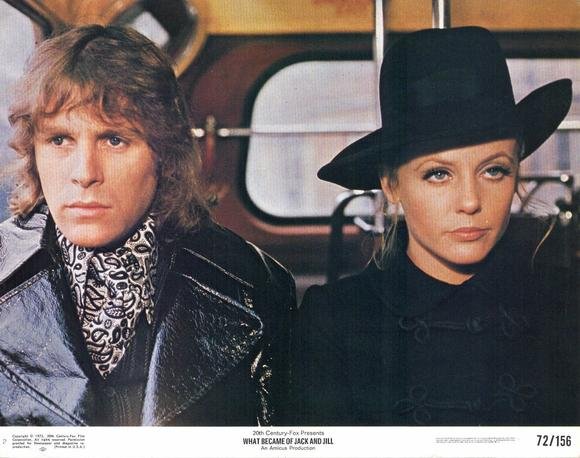
What Became Of Jack And Jill? (1972)
“You met Gran twice… what the hell was it you said to her?”
There’s a big mystery at the heart of What Became Of Jack And Jill? (no, it’s not “how did this ever get made”, cheeky). It’s what became of Vanessa Howard?
Obvs, we know what happened to her, because we have Google. She popped up in a handful of films in the late 60s and early 70s (including this one), retired from acting at the ripe old age of 25, went to America and lived a presumably happy life until her untimely death in 2010 at the age of 62.
But I ask because in the few films she made, she’s absolutely brilliant playing amped-up psychotic versions of the British-style “mean girl” we’ve all come across at some point in our lives – the pretty, privileged nutcases with perfect hair and mad eyes who are always moments away from wrecking the lives of everyone with whom they come into contact.
Her star turn in Mumsy Nanny Sonny And Girly is her career high – never before has a serial killer carried off a burgundy beret with such aplomb. But her role as Jill in this oddity isn’t far behind – a cold hearted bitch with her eye on just one prize… enough money to keep her in the lazy life to which she’s become accustomed. Her boyfriend may be a piece of work himself but she’s an absolute loon, and the film is all the better because of it.
So it’s a real shame Howard decided to cut her film career short, and this review is my belated salute to one of those lights that may only burn half as long, but definitely twice as brightly.
That’s enough preamble – what the what is What Became Of Jack And Jill actually about? Well, not much, as it happens… it’s a weird little psycho drama from the other big name in British horror (Amicus), attempting to jump on the “pretty-boy psycho” bandwagon so well-mined by its peers in the late 60s and early 70s.
John (Paul Nicholas) lives with his grandmother in her sprawling house, and spends his time tormenting her with stories of how “youth is taking over”. He fantasises about being a gestapo officer, taking the oldies, lining them up against a wall and shooting them.
Together with his girlfriend Jill (Howard), he concocts a plan to drive gran to an early(ish) grave. A student march is due to come right past the house, so the pair use it as proof that the “youth” have finally snapped and are embarking on a Purge-style murder spree. With the (peaceful) march giving a hectic and full-volume credence to their play-acting, they convince Gran that her number is up, eventually bringing on a fatal heart attack for the old dear.
Utterly remorseless, they celebrate their forthcoming ill-gotten gains, but after the funeral discover that John won’t inherit a penny if he marries Jill (unsurprisingly, Gran didn’t have much time for her).
Jill berates John for procrastinating on the murder and giving Gran the chance to change her will (“You waited too long, Johnny-boy…”) and John, reasonably, wonders “You met Gran twice… what the hell was it you said to her?”
But the money they have is running out… and there’s only one choice available for the pair. Get jobs? Nope. Marry John off to someone else so he can claim his inheritance (obviously). But lest we forget, Jill is a certified loon… and she’s having a hard time keeping a lid on her jealousy as John does what he’s told and finds a potential bride.
As such tales go, this one’s not too bad although the story is slim, to say the least. Nicholas and Howard are chilling, playing against their beautiful-people looks (something both did a few times on film). Poor old Mona Washbourne as Gran is painfully believable as the frail and unsuspecting victim, and her murder is a noisy, chaotic tour-de-force. Tonally, it’s a bit all over the place – is it a camp fantasy, or a kitchen sink drama? The film never really makes up its mind. But as a golden era Brit horror oddity, it’s worth a look.
